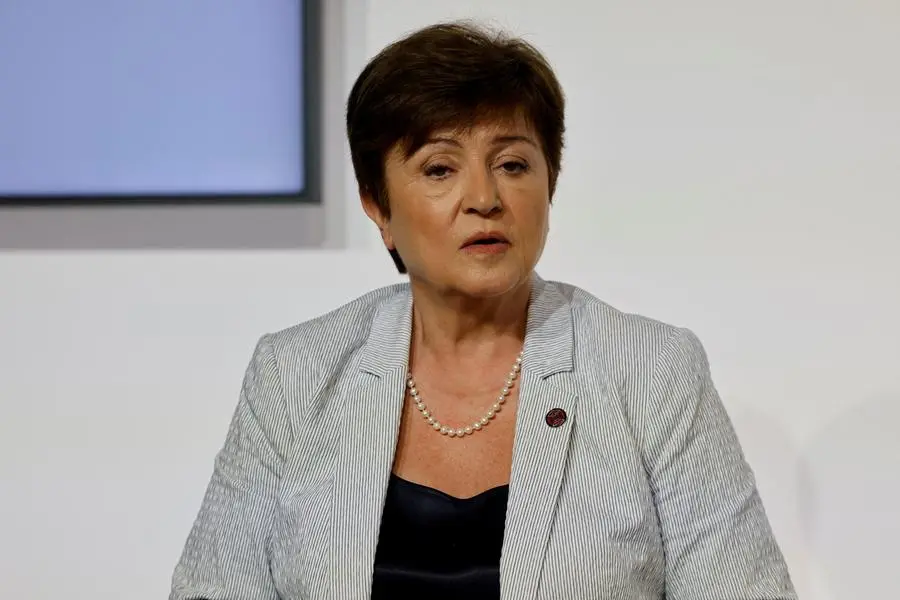PHOTO
The International Monetary Fund (IMF) Managing Director Kristalina Georgieva welcomed the progress made in restoring debt sustainability globally, citing Zambia and Chad, at a meeting of the G20 Finance Ministers and Central Bank Governors in India.
Georgieva said the recent agreement on Zambia's debt restructuring was a significant milestone for the G20 Common Framework, building on earlier steps to address Chad’s debt.
However, she said "the debt restructuring process still needs to be speedier and more effective," an IMF statement quoting Georgieva's speech on Tuesday in Gandhinagar in the western Indian state of Gujarat said.
"The costs of delays in reaching agreement on needed debt treatments are borne acutely by borrower countries and their people, who are least able to bear this burden."
Zambia last month reached an agreement to restructure $6.3 billion in debt owing to other governments, notably China, marking a long-awaited milestone for impoverished countries throughout the world who have faced protracted negotiations with creditors.
Zambia became the first African country to default on its sovereign debt during the COVID-19 crisis in 2020.
The southern African country and the IMF began the process with a staff-level agreement on an external loan facility to restore macroeconomic stability following the election of President Hakainde Hichilema in August 2021.
In November last year, Chad reached an agreement with its creditors, notably Swiss commodities trader Glencore, paving the path for more IMF support but falling short of eliminating the country's $3 billion in external debt.
The agreement, was the first to be reached under the Common Framework, established by the Group of 20 major economies in late 2020 to assist impoverished nations in dealing with the aftermath of the COVID-19 pandemic. However, the framework has been beset by long delays to obtain debt relief.
"And so we have work to do," said Georgieva, the first person from an emerging market economy to head the IMF.
"Our world may be wealthier today than when the current international financial architecture was established, but it is also more fragile. The global economy has shown resilience, but this resilience is not evenly distributed," she said.
In a wide-ranging speech that touched on global economic issues, Georgieva said the global economy has shown some resilience despite successive shocks in recent years and the rapid rise in interest rates.
"Global growth - although anaemic by historical standards -remains firmly in positive territory, supported by strong labor markets and robust demand for services," she said.
However global activity is slowing, especially in the manufacturing sector, and medium-term growth prospects remain weak while divergence in countries’ economic fortunes was a persistent concern, she added.
"On inflation, there is some encouraging news – the trend is finally downwards. But headline inflation is still too high," she said, citing elevated food and fertilizer prices and warning that even more monetary policy tightening could be required.
Georgieva thanked the government of India for hosting the meetings and its Minister of Finance Nirmala Sitharaman and Governor Shaktikanta Das for their stewardship of the G20.
"I have said before that India is a bright spot in the global economy, and the vibrancy of India has shined through clearly during our gatherings," she said.
(Editing by Seban Scaria seban.scaria@lseg.com )




















